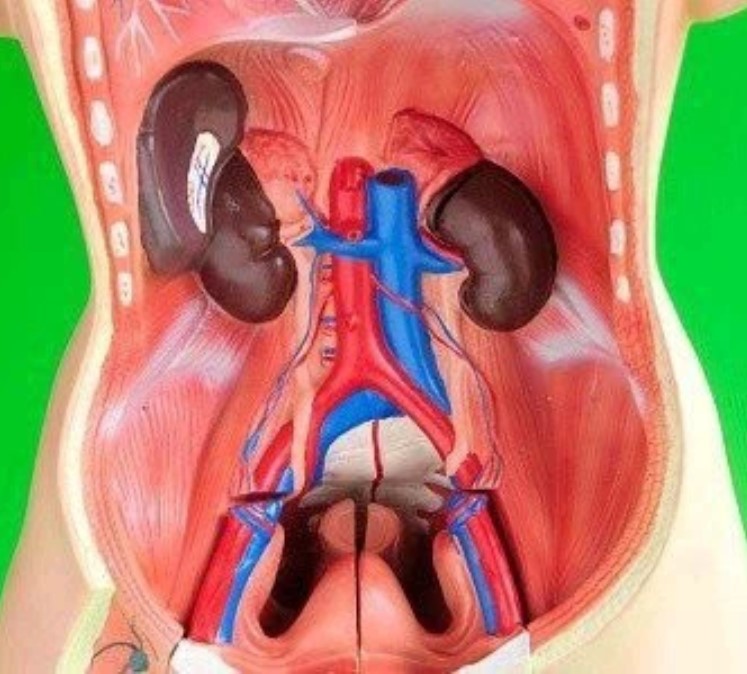A sore tongue can be uncomfortable, often indicating an underlying issue that needs attention. Various factors can contribute to tongue soreness, from local injuries to systemic conditions. This article will explore why the tip of the tongue can be painful and what it might mean. Understanding these symptoms is important for early detection and proper treatment, as they can sometimes be a sign of more serious health problems. By learning about the causes and effects of soreness at the tip of your tongue, you can gain valuable knowledge about your oral health and overall well-being.
Causes of Sore Tongue: From Local Injuries to Infections
A sore tongue can be a bothersome condition, causing discomfort and affecting daily activities like eating, speaking, and swallowing. Understanding the causes of a sore tongue is crucial for early detection and proper management. This section will explore the common causes of a sore tongue, including local injuries and sores…Click Here To Continue Reading>> …Click Here To Continue Reading>>
1. Local Injuries and Sores
Everyday accidents can lead to painful injuries on the tongue. Here are some examples:
- Burns on the tongue: Consuming hot food or beverages without caution can result in burns on the tongue. The tip of the tongue is particularly vulnerable to burns due to its exposure while eating or drinking.
- Bites on the tongue: Accidentally biting your tongue while chewing or during a fall can cause trauma and pain at the tip of the tongue. This type of injury may also cause swelling and discomfort.
- Cuts on the tongue: Sharp objects like toothpicks or utensils can accidentally cut the tip of your tongue, leading to pain and potential bleeding. It’s important to be cautious when handling sharp objects near your mouth.
Another common cause of a sore tongue is canker sores. Canker sores are small, shallow ulcers that can develop inside your mouth, including on the tip of your tongue. These sores can be painful, making it uncomfortable to eat or speak. While their exact cause is unknown, factors such as stress, hormonal changes, certain foods, and minor injuries may contribute to their development.
Local injuries and sores on the tip of the tongue usually resolve on their own within a week or two with proper self-care measures such as:
- Avoid spicy or acidic foods that could irritate the area.
- Maintaining good oral hygiene.
If you experience persistent or severe pain, unusual symptoms, or soreness that doesn’t improve after a couple of weeks, it’s important to seek professional medical advice for further evaluation and diagnosis.
2. Infections, Such as Oral Thrush
Oral thrush, or oral candidiasis, is a fungal infection caused by the overgrowth of Candida yeast in the mouth. It can affect various parts of the oral cavity, including the inner cheeks and roof of the mouth, and it can also lead to discomfort and soreness on the entire surface of the tongue.
- White lesions resembling cottage cheese on the tongue’s surface are a characteristic sign of oral thrush.
- However, when it comes to discomfort and pain at the tip of the tongue, heightened sensitivity may lead to more pronounced symptoms, even with minor irritation.
- This emphasis on the tip can result from increased nerve endings and vulnerability to external stimuli.
In addition to localized discomfort, oral thrush can also manifest with other symptoms, such as loss of taste and an overall sensation of mouth dryness. If you suspect oral thrush or experience persistent soreness in your mouth or on your tongue, it is important to seek professional evaluation, as timely diagnosis and treatment are crucial for effective management.
3. Nutrient Deficiencies and Allergic Reactions
When it comes to the causes of a sore tongue, nutrient deficiencies and allergic reactions can play a significant role. Here’s what you need to know about these factors:
- Vitamin Deficiencies:
- Vitamin B Deficiency: Inadequate intake of B vitamins, such as B12 and folate (B9), can result in a sore tongue. These deficiencies may arise from poor dietary choices or conditions that affect nutrient absorption in the body. The lack of these essential vitamins can lead to oral discomfort and sensitivity, potentially affecting the tip of the tongue.
- Iron Deficiency Anemia: Insufficient iron levels can also contribute to tongue soreness. Iron deficiency anaemia may manifest with symptoms such as a swollen, smooth, and sore tongue.
- Allergic Reactions:
- Food Allergies: Certain individuals may experience allergic reactions to specific foods, triggering localized inflammation and discomfort in the mouth, including the tip of the tongue. Common allergens such as nuts, shellfish, dairy products, and acidic or spicy foods can elicit oral allergic responses in susceptible individuals.
Understanding the potential impact of nutrient deficiencies and allergic reactions on tongue health is crucial for identifying and addressing underlying causes of discomfort.
Less Common but Serious Causes
Some less common but serious causes of a sore tongue should not be ignored. While most cases of tongue discomfort can be attributed to local injuries, infections, or nutrient deficiencies, it’s important to be aware of other potential underlying issues that may require medical attention. In this section, we will discuss two of these less common causes: tongue cancer and burning mouth syndrome.
1. Tongue Cancer
Tongue cancer is a serious condition that can cause persistent tongue pain. It typically manifests as non-healing sores on the tongue and can be accompanied by other symptoms, such as difficulty chewing and swallowing. Raising awareness about tongue cancer is important because early detection is crucial for successful treatment.
If you have persistent tongue pain that does not improve with time or treatment, you must consult a healthcare professional for an accurate diagnosis. In addition to non-healing sores and difficulty chewing and swallowing, other symptoms of tongue cancer may include:
- Red or white patches on the tongue
- A lump or thickening on the tongue
- Numbness or tingling in the mouth
- Pain in the jaw or ear
- Unexplained weight loss
Remember that other conditions can also cause these symptoms, so it’s important not to jump to conclusions. However, if you are experiencing any of these symptoms along with persistent tongue pain, it’s crucial to seek medical attention for further evaluation.
2. Burning Mouth Syndrome and Its Enigmatic Nature
Burning mouth syndrome (BMS) is another less common cause of tongue discomfort. This condition is characterized by a chronic sensation of mouth pain, including tongue tip. Individuals with BMS often describe a burning or scalding sensation in their mouth that can be constant or intermittent.
The exact cause of burning mouth syndrome is unknown, adding to its enigmatic nature. It can be challenging to diagnose, as there are no specific signs or visible abnormalities in the mouth. However, it is believed to be linked to nerve changes that control pain and taste.
In addition to tongue pain, other symptoms of burning mouth syndrome may include:
- Dry mouth
- Metallic taste
- Changes in taste sensation
- Increased thirst
Managing burning mouth syndrome can be complex, and treatment options may vary depending on the individual. It’s important to consult with a healthcare professional who can help develop a personalized management plan based on your specific symptoms and needs.
The Complex Nature of Burning Mouth Syndrome
One of the intriguing aspects of burning mouth syndrome is its enigmatic nature. It can be challenging to diagnose and treat due to its complex and multifactorial nature. The condition can arise spontaneously or be triggered by various factors, such as:
- Hormonal changes (menopause)
- Psychological factors (stress, anxiety, depression)
- Nutritional deficiencies (vitamin B12, iron)
- Oral habits (teeth grinding)
In some cases, there may not be an identifiable cause at all.
Unique Features of Burning Mouth Syndrome
What sets burning mouth syndrome apart from other conditions is its association with generalized oral discomfort and specific involvement of the tongue’s anterior region. While some individuals may experience pain throughout their mouth, others may primarily feel it on the tip of their tongue. This localized discomfort can make everyday activities like eating, speaking, and swallowing particularly challenging and distressing.
Diagnosing and Treating Burning Mouth Syndrome
The diagnosis of burning mouth syndrome involves ruling out other potential causes of oral pain and discomfort through a comprehensive evaluation that includes:
- Thorough medical history
- Physical examination
- Potentially additional tests such as blood work or imaging studies
Treatment options for burning mouth syndrome are aimed at managing symptoms and may include medications such as:
- Topical anesthetics
- Anticonvulsants
- Antidepressants
- Hormone replacement therapy
Exploring Other Rare Tongue Conditions
While tongue cancer and burning mouth syndrome are two significantly less common causes of tongue pain, it’s worth noting that other rare conditions can affect the structure and sensation of the tongue. These conditions may involve different areas of the tongue, including the tip.
If you experience unexplained or problematic symptoms related to your tongue, such as persistent pain or changes in appearance, it’s essential to seek professional evaluation for an accurate diagnosis. Early detection and proper diagnosis are key to managing and treating any underlying conditions effectively.
Importance of Seeking Professional Evaluation
If you experience persistent tongue pain or unusual oral symptoms, it is important to seek a professional evaluation. While burning mouth syndrome is a relatively rare condition compared to more common causes of sore tongue, it requires attention due to its potential severity and long-term effects on oral health. By understanding the nature of burning mouth syndrome and its connection to sore tongue symptoms, you can take the necessary steps to manage and alleviate your discomfort.
Exploring Other Rare Tongue Conditions
Regarding less common causes of sore tongue, it’s important to be aware of certain rare conditions that can affect oral health. While these occurrences are infrequent, they require attention due to their potential severity and long-term effects. Some of these conditions include:
- Oral Lichen Planus: This chronic inflammatory condition can impact the mucous membranes in the mouth, including the tongue. It may lead to white, lacy patches or open sores on the tongue, causing discomfort and potential changes in sensation.
- Leukoplakia Patches on Tongue: Leukoplakia manifests as thick, white patches on the tongue or elsewhere in the mouth. These patches are often caused by irritation and can harbour precancerous cells, necessitating medical evaluation.
- Geographic Tongue: Also known as benign migratory glossitis, this condition results in irregular patches on the tongue’s surface, creating a map-like appearance. While typically harmless, it can cause discomfort or sensitivity in some individuals.
Encountering unexplained or problematic symptoms related to the tongue should prompt a professional evaluation for an accurate diagnosis. Seeking timely medical attention is crucial in addressing underlying issues and ensuring appropriate management of these rare conditions. READ FULL STORY HERE>>>CLICK HERE TO CONTINUE READING>>>
Managing and Preventing Discomfort
Practical Self-Care Measures
When you have soreness at the tip of your tongue, there are several things you can do to feel better and help it heal:
- Gentle Oral Hygiene: Take care of your mouth by brushing your teeth and tongue gently. This will remove anything irritating your tongue or causing an infection.
- Avoid Irritants: Avoid foods and drinks that are hot, spicy, or acidic. These can make the pain in your tongue worse.
- Topical Relief: Rinse your mouth with a saltwater solution or use gels you can buy without a prescription. These can help soothe the area that’s hurting.
- Pain Management: If you’re in a lot of pain, you can try taking over-the-counter pain relievers like ibuprofen or acetaminophen. They can help make you more comfortable.
Medical Treatment Options
If your tongue continues to be sore or the pain is severe and caused by an underlying condition like an infection or a nutrient deficiency, it’s important to see a doctor for proper medical advice. They may suggest one or more of these treatments:
- Prescription Medications: Depending on what’s causing the discomfort in your tongue, your doctor might prescribe antifungal, antibiotic, or antiviral drugs.
- Topical Applications: They could also recommend using special creams or ointments directly on the affected area to reduce pain and swelling.
- Targeted Interventions: When soreness is related to problems in other parts of the body, like low levels of certain nutrients or autoimmune diseases, it’s crucial to get specific medical treatments that address those issues.
By combining self-care measures with appropriate medical treatment tailored to the underlying cause of the discomfort, you can take proactive steps towards managing and alleviating soreness at the tip of your tongue.
Preventing Future Episodes
Sore tongue symptoms can be distressing, but there are steps you can take to reduce the risk of future episodes. By implementing certain prevention strategies, you can minimize the likelihood of experiencing recurrent discomfort at the tip of your tongue. Here are some tips to help you prevent sore tongue symptoms:
- Maintain Oral Hygiene: Regular brushing and flossing can help prevent oral infections and reduce the risk of tongue discomfort.
- Avoid Irritants: Avoid hot, spicy, or acidic foods and beverages that may trigger tongue pain.
- Balanced Diet: Ensure your diet includes essential nutrients to prevent deficiencies contributing to tongue soreness.
- Manage Stress: Stress can exacerbate oral health issues, so practising stress-reducing techniques may help prevent tongue discomfort.
- Stay Hydrated: Adequate hydration is important for overall oral health and can help prevent dry mouth, which may contribute to tongue pain.
By incorporating these preventive measures into your daily routine, you can proactively work towards reducing sore tongue symptoms and promoting overall oral well-being.
Conclusion
Sore tongue symptoms can be crucial indicators of underlying health issues, emphasizing the importance of paying attention to any discomfort or unusual changes in the tongue’s condition.
Do not ignore persistent or concerning cases of tongue pain, especially if it involves prolonged or recurrent discomfort at the tip of the tongue or any other unusual oral symptoms.
Consult a healthcare professional for proper evaluation and diagnosis, ensuring timely and appropriate management of any potential underlying conditions related to sore tongue symptoms.
FAQs (Frequently Asked Questions)
What are the common causes of sore tongue?
The common causes of sore tongue include burns on the tongue, bites on the tongue, cuts on the tongue, and canker sores on the tongue.
What are some examples of local injuries that can cause tongue pain?
Examples of local injuries that can cause tongue pain include burns on the tongue, bites on the tongue, cuts on the tongue, and canker sores on the tongue.
How do fungal infections like oral thrush contribute to soreness on the tongue?
Fungal infections like oral thrush can cause soreness on the entire surface of the tongue, with possible emphasis on the tip due to increased sensitivity.
What role do vitamin deficiencies play in contributing to tongue soreness?
Vitamin deficiencies, particularly B vitamins, can contribute to tongue soreness. Additionally, allergic responses to certain foods can lead to localized inflammation and discomfort at the tip of the tongue.
Why is it important to know less common but serious causes of sore tongue?
It’s important to be aware of less common but serious causes of sore tongue. Conditions such as tongue cancer and burning mouth syndrome require attention due to their potential severity and long-term effects on oral health.
What are some examples of less common but serious causes of sore tongue?
Less common but serious causes of sore tongue include conditions such as non-healing sores on the tongue, painful chewing and swallowing, and rare disorders like oral lichen planus, leukoplakia patches on the tongue, and geographic tongue.
How can acute symptoms of sore tongue be relieved?
Acute symptoms of sore tongue can be relieved through self-care measures and appropriate home remedies. Additionally, medical treatment options for underlying conditions causing persistent or severe soreness should be considered under professional guidance.
What tips can help in reducing the risk of recurrent sore tongue episodes?
Tips for reducing the risk of recurrent sore tongue episodes include lifestyle adjustments and maintaining oral hygiene.
When should one seek medical attention for persistent or concerning cases of sore tongue?
If experiencing prolonged or recurrent discomfort in the tip of the tongue or any other unusual oral symptoms, it is important to consult a healthcare professional for proper evaluation and diagnosis.


















